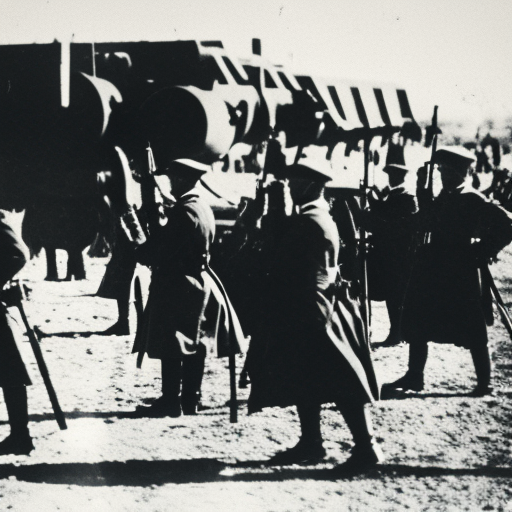Summary:
The Anglo-Spanish War was a conflict that spanned several decades, from 1585 to 1604, between England and Spain. It was primarily fought over religious and political differences, with England supporting Protestantism and Spain championing Catholicism. The war had significant consequences for both countries and marked a turning point in European history.
Background:
The roots of the Anglo-Spanish War can be traced back to the Protestant Reformation in the 16th century. England had embraced Protestantism under the reign of Henry VIII and continued to do so during the reign of his daughter, Elizabeth I. Spain, on the other hand, remained a staunchly Catholic nation under the rule of Philip II.
Causes:
The war was fueled by a combination of religious, political, and economic factors. England’s support for Protestant rebels in the Spanish Netherlands and its privateering activities against Spanish ships in the Atlantic angered Philip II. Additionally, England’s growing maritime power threatened Spain’s dominance in the New World, leading to increased tensions between the two nations.
Key Events:
The war can be divided into three main phases. The first phase, from 1585 to 1588, saw England’s involvement in the Dutch Revolt against Spanish rule. English forces, led by Sir Francis Drake, launched successful raids on Spanish ports and ships, weakening Spain’s grip on the Netherlands.
The second phase of the war was marked by the Spanish Armada’s failed invasion of England in 1588. The Armada, a massive fleet of Spanish ships, was intended to transport an invasion force to England and overthrow Elizabeth I. However, the English navy, led by Lord Howard and Sir Francis Drake, successfully repelled the Armada, inflicting heavy losses on the Spanish fleet.
The final phase of the war, from 1589 to 1604, saw England taking the offensive against Spain. English forces, under the command of Sir Francis Drake and the Earl of Essex, launched expeditions to the Spanish Main, capturing Spanish treasure ships and raiding Spanish colonies in the Caribbean. These actions severely weakened Spain’s economy and marked the beginning of England’s rise as a global maritime power.
Consequences:
The Anglo-Spanish War had far-reaching consequences for both England and Spain. For England, the defeat of the Spanish Armada was a turning point in its history. It solidified England’s status as a major naval power and paved the way for its eventual colonization of North America.
For Spain, the war marked the beginning of its decline as a dominant European power. The loss of the Armada and the subsequent economic damage inflicted by English privateering severely weakened Spain’s economy and its ability to project power abroad. Spain’s focus shifted from global expansion to defending its remaining territories and maintaining its Catholic hegemony.
The war also had broader implications for Europe. It intensified religious divisions between Protestant and Catholic nations and contributed to the polarization of the continent. The conflict set the stage for future conflicts, such as the Thirty Years’ War, which ravaged Europe in the 17th century.
In conclusion, the Anglo-Spanish War was a significant conflict that shaped the course of European history. It was fought over religious, political, and economic differences and had profound consequences for both England and Spain. The war marked England’s rise as a maritime power and Spain’s decline as a dominant European nation. It also intensified religious divisions in Europe and set the stage for future conflicts.












